|
May 29, 2018
CP Rail Workers Continue to Press
Just Demands
Conductors, Engineers, Signals
and Communications Workers Serve
Strike Notice
PDF
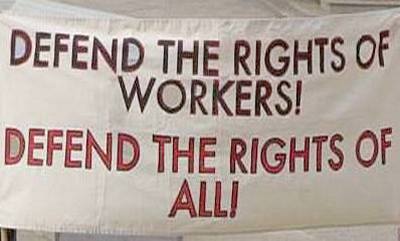 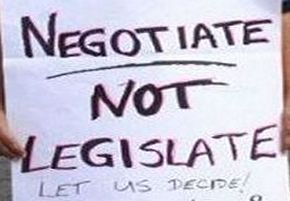
CP
Rail
Workers
Continue
to
Press
Just Demands
• Conductors, Engineers, Signals and
Communications Workers Serve Strike Notice
FTQ-Construction
Triennial Convention
• Quebec Construction Workers Defend the
Dignity of Labour
• Interview, Richard Goyette, Former Director
General, FTQ-Construction
Montreal Transit
Workers Defend Working Conditions and Public Transit
• Maintenance Workers Give Strike Mandate
U.S. Monopoly
Threatens to Close Ontario's Huron Central Railway
• Threats and Blackmail Par for
the Course in
Nation-Wrecking
• Coming Events
CP Rail Workers Continue to Press Just
Demands
Conductors, Engineers, Signals and Communications
Workers Serve Strike Notice
The Teamsters Canada Rail Conference (TCRC) and the
International
Brotherhood of Electrical Workers (IBEW) issued a press release on May
26 to announce that they have served
Canadian Pacific (CP) with notice of intent to strike, effective
Tuesday, May 29 at 10:00 pm if there is no negotiated settlement by
then.
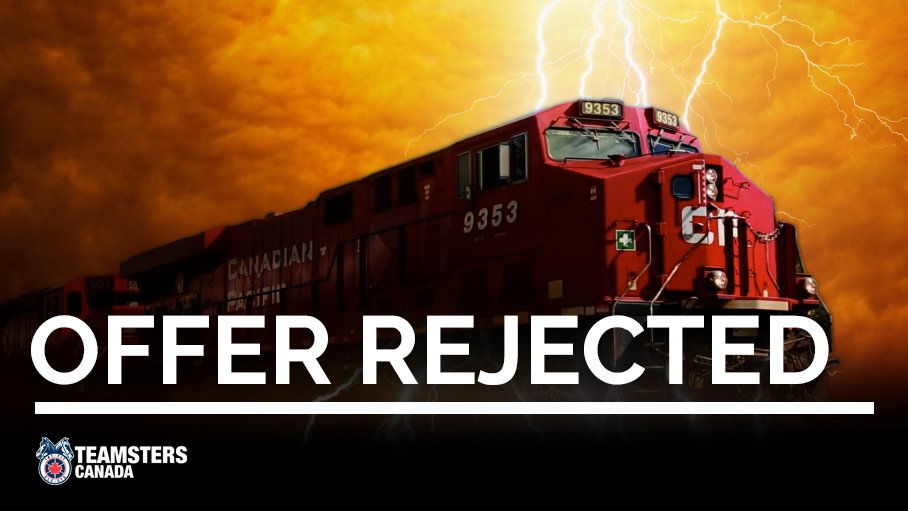 The unions issued the
strike notice the day after the
Canada
Industrial Relations Board reported that CP workers had voted
overwhelmingly to reject the company's final offer. The
workers were forced to vote on the company's offer by order of the
Federal Minister of Labour issued on April 20, only hours before the CP
workers were to strike. TCRC members at CP
voted 98.1 per cent to reject the offer with a turnout of approximately
77 per cent while IBEW members voted 97.2 per cent to reject with a
turnout of 89 per cent. TCRC represents about
3,000 conductors and locomotive engineers at CP and the IBEW represents
about 360 CP signals and communications employees. The unions issued the
strike notice the day after the
Canada
Industrial Relations Board reported that CP workers had voted
overwhelmingly to reject the company's final offer. The
workers were forced to vote on the company's offer by order of the
Federal Minister of Labour issued on April 20, only hours before the CP
workers were to strike. TCRC members at CP
voted 98.1 per cent to reject the offer with a turnout of approximately
77 per cent while IBEW members voted 97.2 per cent to reject with a
turnout of 89 per cent. TCRC represents about
3,000 conductors and locomotive engineers at CP and the IBEW represents
about 360 CP signals and communications employees.
In the joint communique, the unions report that after
one day of
attempting to negotiate with CP once the vote to reject the offer was
announced, it was abundantly clear that the
company was still refusing to negotiate on the basis of the just
demands of the CP workers. The communique quotes TCRC President Doug
Finnson as saying, "CP is offering more of the
same contract language that workers just voted to reject a few hours
ago. The company clearly isn't serious about reaching a negotiated
settlement and delivering on their promise to do
right by their employees." Steve Martin, Senior General Chairman from
IBEW System Council No. 11 said "CP has continually changed directions
during negotiations with little evidence
that a settlement was ever possible. We have given CP every reasonable
opportunity to negotiate and avoid a strike, but sadly that has led us
nowhere."
|

Sign from the 2012 CP strike, showing the company's longstanding
refusal to deal with scheduling issues.
|
Among the important issues that workers have raised in
the
negotiations is fatigue, largely caused by irrational and unsafe
schedules, and the requirement that workers be basically on
call 24/7, and the company's punitive discipline and adversarial labour
relations. The company's position throughout the negotiations and
before was to reject workers' demands, claiming
that making changes that would protect the workers and the public did
not satisfy the company's need for "flexible working conditions" and
that workers must be "open to change" in a
competitive environment.
CP is counting on anti-worker propaganda in the
monopoly media to
support its assault on the workers. The monopoly media only
acknowledges the existence of railway workers when
there is a strike or the threat of a strike and there are already press
reports attacking the CP workers, alleging that their strike action
will cause hardship to grain shippers and others who
rely on the railways to move their products. They do not report on the
conditions workers are facing or on the justness of their demands for
working conditions that protect both the workers
and the public. Nor do they report that CP is deliberately provoking a
strike and counting on further intervention by the federal government
to crush it. CP is counting on the federal
government to prevent a strike or legislate striking workers back to
work, citing the "national interest" and even the necessity to "keep
talking" when "talks" are a figment of their
imagination.
To date there have been no negotiations to address the
serious
issues facing the CP Rail workers, those who actually operate and
maintain the entire railway system and who know
firsthand the dangers to themselves and the public posed by their
working conditions. The workers have repeatedly rejected threats and
stood their ground. Their demands are just and their
fight to achieve an acceptable contract by exercising their right to
withdraw
their capacity to work must be supported.

FTQ-Construction Triennial Convention
Quebec Construction Workers Defend
the Dignity of
Labour
FTQ-Construction, the construction union affiliated
with the Quebec
Federation of Labour is holding its Triennial Convention in
Victoriaville from June 5 to 7. With more than 75,000 members and 43
per cent of all unionized construction workers, it is the largest of
the five Quebec construction unions. On the
convention's agenda is what the union has accomplished in the
last four years and setting its program for the next four years. As it
is a general election year in Quebec, the convention is also taking up
the election platform of the FTQ-Construction,
with the main demands it will be putting forward.
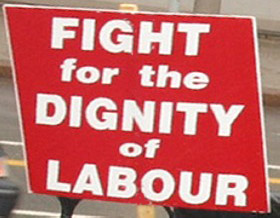 The convention takes place
at a crucial time for the
workers when
they must work out how to defend the union which is under all-sided
pressure to submit to the anti-social offensive
of the big construction companies and the government of Quebec which
serves them. The workers and their union have been targets of
state-organized attacks and slanderous propaganda which
blames them for corruption and mafia-type activity on construction
sites when it is well-known that these are the speciality of the big
construction companies. The workers have faced
these attacks with courage and defiance at critical moments. To accuse
them of intimidation when they organize to defend their rights against
the employers' denial of proper wages and
working conditions reveals the profoundly anti-worker outlook of their
accusers. The convention takes place
at a crucial time for the
workers when
they must work out how to defend the union which is under all-sided
pressure to submit to the anti-social offensive
of the big construction companies and the government of Quebec which
serves them. The workers and their union have been targets of
state-organized attacks and slanderous propaganda which
blames them for corruption and mafia-type activity on construction
sites when it is well-known that these are the speciality of the big
construction companies. The workers have faced
these attacks with courage and defiance at critical moments. To accuse
them of intimidation when they organize to defend their rights against
the employers' denial of proper wages and
working conditions reveals the profoundly anti-worker outlook of their
accusers.
Workers' Forum is publishing an interview with
Richard
Goyette, a labour lawyer and former Director General of
FTQ-Construction, on the problems and challenges
construction workers face at this time.
Workers' Forum
wishes the delegates to the FTQ-Construction
convention success in their deliberations on how to make their voices
heard and be
effective in providing solutions to the
problems they face.

Interview, Richard Goyette,
Former Director General,
FTQ-Construction
Workers'Forum: As FTQ-Construction
prepares to
hold its triennial convention, what do you think are the main problems
facing construction workers in Quebec
at this time?
Richard Goyette: The problems
go back a
long way. Whenever governments have looked at the construction industry
over the last 50 years, rather than saying that
the problem is the lack of job security and seniority, the lack of
income security, the staggering number of deaths per year; instead of
dealing with the human side of construction, they have
made policies more restrictive, brought in the police, fined people
etc. They neglect to say that construction is a precarious, dangerous,
cyclical, seasonal industry in which, on average,
projects last two-and-a-half months, although there are some that last
much longer. Every time there is a crisis in the industry, they say the
problem is the unions fighting each other. Even
when they organized inquiry commissions to chastise us, the
recommendations of the commissions always came back to the question
that the source of the problems was [the workers' need] to put bread on
the
table, the problems of lack of security, whether it is job, income or
physical security.
|
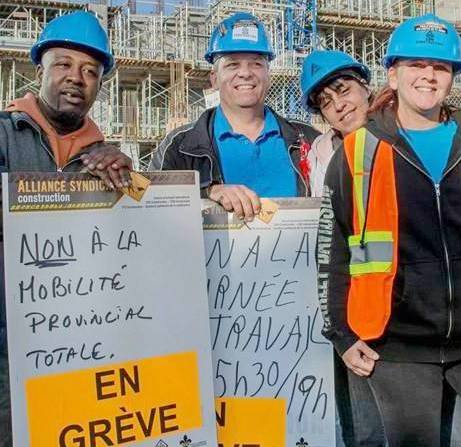
Quebec construction workers protest issues of imposed labour mobility
and untenable work schedules during their 2017 strike.
|
If you want to solve the problems of construction, it
is not by
introducing repressive measures but by giving people security. That is
the problem. You can have your wages stolen and
the Quebec Construction Commission takes a long time to react, and you
cannot grieve this. This is an industry where there are thousands of
wounded, 50 fatalities a year, where people are
pressured to work under the table and are being silenced, where the
construction-related provisions of the Act respecting occupational
health and safety, legislation that has been in
force since 1980, have not yet been promulgated. In this situation
there are always going to be crises in the industry. The government
always intervenes in favour of the owners, the
contractors and the big companies by using repression against workers.
The workforce in the construction industry is kept in a precarious
situation, as if the industry was not a structured
industry.
The example of crane operators is different. They have
a seniority
and job security clause. It is they who log the most hours, who do the
most recorded extra time. The employer
cannot tell a crane operator not to declare his hours, that he will
fire him if he does so. And now crane operators are under attack
by the Quebec Construction Commission, with new rules that allow anyone
to operate a crane. If that is not
deliberate, someone should explain that to me. They know very well that
this will endanger the safety of the crane
operators and the public.
We hear about a shortage of labour as the reason given
to justify
those kinds of measures. Among construction workers and salaried people
in the industry, 18 per cent leave the
profession each year. This is not a shortage of labour, it is a
shortage of the capacity to retain workers. Crises in the construction
industry can be fixed, without police. Job security, income
security, right of recall, recall of laid off workers when there is a
real shortage of labour, the application of all of the
provisions of the Act respecting occupational
health and safety
on
construction sites -- the solutions are there. I do not think
governments will do it unless we force them to. It must be
remembered that 68 per cent of construction contracts are with
government. Does the government, as an administrator, prefer
precariousness and not want trouble so it allows companies to do what
they want?
WF:
What is the role played by
Bill 152, (An Act to amend various labour-related legislative
provisions mainly to give effect to certain Charbonneau Commission
recommendations) in this situation?
RG: The first thing is to draw the
conclusion that
the problem is insecurity, instability. Bill 152 is another step to
silence workers. It adds repressive measures.
Among other things, Bill 152 singles out union
representatives
alleged to have done something deemed to be intimidation. If you are
found guilty of intimidation, you will not be able
to hold a union representative position for five years. If you have
been found guilty before, this measure will apply retroactively to you.
The bill adds to the offences that constitute
intimidation. It's done deliberately. It is being discussed everywhere
in the industry that it is to get rid of the union reps who the
employers do not want on the construction sites because
they stir things up, not to put money in their own pockets but to
defend their members. When it comes to health and safety, if you raise
your voice to defend a worker's life, you have just
intimidated the employer. You first try politely to convince him, then
you raise the tone and you can lose the opportunity to be a union
representative for up to five years.
 WF: What, in
your opinion, are the
prospects for the struggle of construction workers? WF: What, in
your opinion, are the
prospects for the struggle of construction workers?
RG: We have to talk about solutions,
as I just
mentioned. We must go back to our drawing boards and establish income,
physical and job security processes. Then we
must establish the demands and the means of action to achieve them. A
platform of demands for political and social action is needed. We must
show that our demands serve the collective
interest, which is the case, but we have to show that job security, the
availability of jobs in all the regions, is good for the regions. If
you create the conditions for people to live in the
region, the money doesn't go into the pockets of millionaires, it stays
in the region. There is a direct link between our demands and the
public interest. We must also work on public
opinion, which is not easy because of the media, but at least to create
public opinion that says that maybe we're right.
Construction workers build Quebec. They are proud of
their work.
They love this industry. They are everywhere, in schools, hospitals,
agribusiness, the petrochemical and aircraft
industries, everywhere.
They are human beings doing this work. We must take
care of these humans.
It has to be done. That's my message.

Montreal Transit Workers Defend Working
Conditions and Public Transit
Maintenance Workers Give Strike Mandate

Strike vote of Montreal transit maintenance workers, May 27, 2018. (CSN)
In a general membership meeting on May 27, the
maintenance
workers employed by the
Société de transport de Montréal (STM) gave their
union a 98
per cent unlimited strike mandate to
be exercised at a later date, if deemed necessary.
The 2,400 maintenance workers and their union, the
Syndicat du
transport de Montréal (affiliated with the Confederation of
National
Trade Unions), report an avalanche of
company demands for concessions that would result in dismantling their
collective agreement and violating their rights. Major concessions
include conversion of day shifts to evening and night shifts,
mandatory overtime and privatization of services.
On May 24, the STM announced that on June 6 it will
unilaterally ask the Quebec government to appoint a mediator to
intervene in negotiations with the Syndicat
du transport de Montréal. On May 14, the STM had asked the
union
to agree to a joint request to the government to appoint a mediator,
but
the union refused. The STM justified its
request for mediation with the claim that there is a stalemate in
bargaining with maintenance employees, citing the fact that maintenance
employees worked to rule for the week starting May 7,
refusing to work overtime, and were preparing for further actions to
oppose the concessions.
In fact, the stalemate is a deliberate creation of the
STM to
extort anti-worker concessions and degrade services, including the
threat to impose working conditions by decree.
Negotiations are being held under new legislation, Bill 24, adopted by
the Quebec
government in 2016, which restructured negotiations in the
municipal sector. By unilaterally asking for the
intervention of a mediator the STM
is rushing the process provided for by the law, which sets timelines
for
negotiations and imposes mediation. This can
lead to the appointment of a special mandatary if mediation fails or if
the government decides that there are special circumstances justifying
such an appointment. On receipt of the secret
report of the mandatary on the state of negotiations, the Minister may
introduce legislation to impose a collective agreement.
Backed by the police powers established by Bill 24, the
STM refuses
to negotiate with its workers and is attempting to blackmail them to
"accept" the unacceptable or face the
imposition of working conditions by decree. Montreal transit
maintenance workers reject this blackmail and are demanding
an acceptable negotiated agreement, one that defends
the services to the public.
Meanwhile, the 4,500 STM bus drivers and subway
operators who are also trying to negotiate a new contract under the
regime of Bill 24 are facing STM's refusal to agree to their just
demand for routes that correspond to actual traffic conditions in
Montreal.

U.S. Monopoly Threatens to Close
Ontario's Huron Central Railway
Threats and Blackmail Par for the Course
in
Nation-Wrecking
The economy needs a new pro-social
direction

Map of the Huron Central Railway (click to enlarge).
The U.S. monopoly Genesee & Wyoming has threatened
to close the
283-km long railway it operates between
Sudbury and Sault Ste. Marie in Northern Ontario. To continue operating
the railway beyond this year, the U.S. global cartel demands $46.2
million in grants from the provincial and
federal governments.
The railway transports 13,000 annual carloads of
freight for many
in the northeast including three major industrial shippers, Essar Steel
Algoma in Sault Ste. Marie, the Domtar paper mill in
Espanola, and the EACOM sawmill in Nairn Centre. Huron Central Railway
(HCR) connects with the main CP line in Sudbury. Genesee & Wyoming
operates HCR under a 1997 lease
agreement with Canadian Pacific Railway, which owns the line.
The railway complains that the freight rates paid by
shippers do
not meet its price of production of the transportation service, in
particular the value needed to maintain the line. The
U.S. company has received state funds throughout the lease arrangement.
In 2010, the City of Sault Ste. Marie and the federal and Ontario
governments arranged state grants to Genesee &
Wyoming totalling $33 million. The company is now back for $23.1
million from the province and a matching amount from the federal
government. If this money is not forthcoming,
Genesee & Wyoming threatens to abandon the railway.
This poses a very serious problem for people and
business in
northeastern Ontario. Shippers say they cannot pay more for freight
delivery as that would render their commodities
uncompetitive in markets outside the north. State subsidies to the
railway mean in part state subsidies for the shippers, especially the
big three industrial producers. The Domtar paper mill
and EACOM sawmill are both under pressure from increased tariffs in the
U.S. while Algoma Steel in crisis almost continually,
resorting to the exceptional state bankruptcy
powers of the Companies' Creditors Arrangement Act.
Transforming HCR into a public enterprise would
eliminate the U.S.
company from expropriating and removing value as private profit, which
would be a step in the right direction.
But this would institutionalize and make permanent state subsidized
rates for the major private industries using the public service. This
means value from elsewhere in the economy would
be needed to make up the income shortfall of the public railway. This
in effect would continue the pay-the-rich scheme for those major
private industries. As is the case generally, other
private interests would refuse to pay for this subsidy through
corporate taxes or other means. The shortfall would be manipulated and
used to call for austerity for the people and reductions
in value being exchanged for the value created within social programs
such as public education and healthcare or raised from state borrowing
from private lenders, which is yet another
pay-the-rich program.
 The refusal to deal with
the problem of nation-wrecking
arises from
a refusal to recognize that the source of the problem arises from the
competition for maximum profit amongst the
privately owned and controlled parts of the economy. Each competing
part demands its right to expropriate as much as possible of the new
value workers produce, to the detriment of other
parts and the whole. They constantly fight to expropriate the maximum
possible amount for their own
private interests. This constant
competition for the value workers produce
contradicts the socialized nature of the modern economy and its
interrelated parts. The exchange of value within the socialized economy
has to be based on mutual benefit to strengthen the
whole in conformity with its modern interconnected character. The refusal to deal with
the problem of nation-wrecking
arises from
a refusal to recognize that the source of the problem arises from the
competition for maximum profit amongst the
privately owned and controlled parts of the economy. Each competing
part demands its right to expropriate as much as possible of the new
value workers produce, to the detriment of other
parts and the whole. They constantly fight to expropriate the maximum
possible amount for their own
private interests. This constant
competition for the value workers produce
contradicts the socialized nature of the modern economy and its
interrelated parts. The exchange of value within the socialized economy
has to be based on mutual benefit to strengthen the
whole in conformity with its modern interconnected character.
A remedy could be found with a new pro-social direction
for the
economy that eliminates the competition of its interrelated parts and
replaces competition with cooperation for the
mutual benefit and common good of the interconnected parts and the
whole. Such an economy would operate as a single seamless
interconnected whole with an aim of nation-building to
serve the well-being of the economy and the people, rather than suffer
an alien aim of expropriating value for the benefit of competing
private cartels.
In this new direction, the value workers produce from
industry at
Algoma, Domtar and EACOM, for example, would not go into private
coffers
outside the economy but would stay in
the north and be redistributed in conformity with the economy's modern
socialized interconnected character. This would strengthen and expand
the whole and its interrelated parts,
especially local manufacturing, infrastructure, public services and
social programs.
The production and realization of new value within the
economy is
uneven and requires cooperation for it to function without disruption
and crises. For example, low volumes and long
distances on HCR result in lower realization of the produced value. New
value has to be moved around to sustain the railway for the common good
of the whole. This would also be the
way to expand passenger rail throughout northern Ontario, which is an
urgent demand and necessity of the people. However the private
competing
interests refuse to cooperate for the common
good.
This moving around of new value has worked before in
Canada to
support nation-building but only in a limited fashion. Certain public
enterprises have been given a monopoly such as
Canada Post and Air Canada in its early formative days and even
Canadian National Railway for a time. The greater realized new value
from the busier shorter routes was moved to the
routes where the realized new value was less. For this to succeed with
HCR, and with the endangered northern railway and port in Manitoba,
which
the U.S. owner refuses to repair and operate, to give two examples,
would entail making the entire rail system in Canada a
single public enterprise allowing realized value to be moved around
from the more profitable routes to those that are
longer and less utilized.
This would continue the pay-the-rich subsidies to
private
industries such as Algoma, Domtar and other beneficiaries, but some
equilibrium could be arranged for them to expropriate an
average profit and not take as much out of the economy. If not willing,
they could relinquish their right to ownership and control and make the
industries public enterprises serving the
economy and common good.
At any rate if Canada is to have a stable viable
economy without recurring crises, something radical needs to be done to
change its direction and aim so the economy serves the people equally
in all parts of the country. The present direction of competition for
maximum private profit, constant crises and paying the rich to the
detriment of economic security and the common good cannot and should
not be allowed to continue.

Coming Events

PREVIOUS
ISSUES | HOME
Website: www.cpcml.ca
Email: office@cpcml.ca
|



 The unions issued the
strike notice the day after the
Canada
Industrial Relations Board reported that CP workers had voted
overwhelmingly to reject the company's final offer. The
workers were forced to vote on the company's offer by order of the
Federal Minister of Labour issued on April 20, only hours before the CP
workers were to strike. TCRC members at CP
voted 98.1 per cent to reject the offer with a turnout of approximately
77 per cent while IBEW members voted 97.2 per cent to reject with a
turnout of 89 per cent. TCRC represents about
3,000 conductors and locomotive engineers at CP and the IBEW represents
about 360 CP signals and communications employees.
The unions issued the
strike notice the day after the
Canada
Industrial Relations Board reported that CP workers had voted
overwhelmingly to reject the company's final offer. The
workers were forced to vote on the company's offer by order of the
Federal Minister of Labour issued on April 20, only hours before the CP
workers were to strike. TCRC members at CP
voted 98.1 per cent to reject the offer with a turnout of approximately
77 per cent while IBEW members voted 97.2 per cent to reject with a
turnout of 89 per cent. TCRC represents about
3,000 conductors and locomotive engineers at CP and the IBEW represents
about 360 CP signals and communications employees.

 The convention takes place
at a crucial time for the
workers when
they must work out how to defend the union which is under all-sided
pressure to submit to the anti-social offensive
of the big construction companies and the government of Quebec which
serves them. The workers and their union have been targets of
state-organized attacks and slanderous propaganda which
blames them for corruption and mafia-type activity on construction
sites when it is well-known that these are the speciality of the big
construction companies. The workers have faced
these attacks with courage and defiance at critical moments. To accuse
them of intimidation when they organize to defend their rights against
the employers' denial of proper wages and
working conditions reveals the profoundly anti-worker outlook of their
accusers.
The convention takes place
at a crucial time for the
workers when
they must work out how to defend the union which is under all-sided
pressure to submit to the anti-social offensive
of the big construction companies and the government of Quebec which
serves them. The workers and their union have been targets of
state-organized attacks and slanderous propaganda which
blames them for corruption and mafia-type activity on construction
sites when it is well-known that these are the speciality of the big
construction companies. The workers have faced
these attacks with courage and defiance at critical moments. To accuse
them of intimidation when they organize to defend their rights against
the employers' denial of proper wages and
working conditions reveals the profoundly anti-worker outlook of their
accusers.
 WF: What, in
your opinion, are the
prospects for the struggle of construction workers?
WF: What, in
your opinion, are the
prospects for the struggle of construction workers?

 The refusal to deal with
the problem of nation-wrecking
arises from
a refusal to recognize that the source of the problem arises from the
competition for maximum profit amongst the
privately owned and controlled parts of the economy. Each competing
part demands its right to expropriate as much as possible of the new
value workers produce, to the detriment of other
parts and the whole. They constantly fight to expropriate the maximum
possible amount for their own
private interests. This constant
competition for the value workers produce
contradicts the socialized nature of the modern economy and its
interrelated parts. The exchange of value within the socialized economy
has to be based on mutual benefit to strengthen the
whole in conformity with its modern interconnected character.
The refusal to deal with
the problem of nation-wrecking
arises from
a refusal to recognize that the source of the problem arises from the
competition for maximum profit amongst the
privately owned and controlled parts of the economy. Each competing
part demands its right to expropriate as much as possible of the new
value workers produce, to the detriment of other
parts and the whole. They constantly fight to expropriate the maximum
possible amount for their own
private interests. This constant
competition for the value workers produce
contradicts the socialized nature of the modern economy and its
interrelated parts. The exchange of value within the socialized economy
has to be based on mutual benefit to strengthen the
whole in conformity with its modern interconnected character.